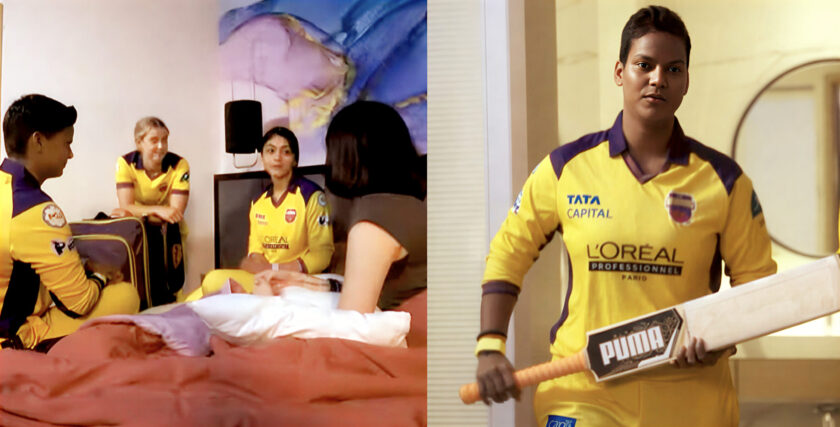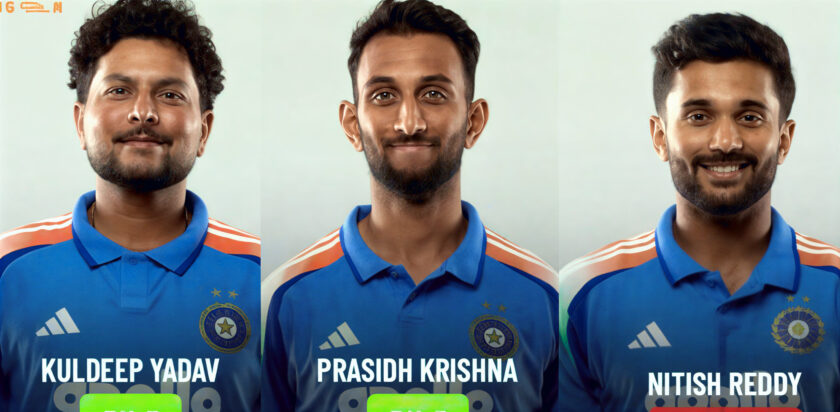Lucknow: In a country that treats cricketers like demigods, it is astonishing how quickly their humanity becomes collateral damage the moment personal turmoil becomes public. The postponement of Smriti Mandhana’s wedding should have prompted empathy—her father was rushed to a hospital with heart-attack-like symptoms, her fiancé Palash Muchhal was hospitalized the very next day due to stress, and two families abruptly found themselves juggling medical emergencies and media glare.
What followed, instead, was a contemptible spectacle. Rumours, “leaked chats,” doctored screenshots, misidentified women, harassment, and doxxing—India’s media ecosystem and its hyperactive social media machine swung into action, not to inform, but to feast.

This wasn’t journalism. It was a moral collapse.
The Postponed Wedding That Became a Public Trial
The official statement was simple and human: a family medical emergency. No mention of a breakup. No accusations. No blame. Yet within hours, anonymous Reddit posts and X threads turned into national headlines. Entertainment portals—Bollywood Life, Financial Express, and others—reported unverified cheating allegations as though they were established fact. Newsrooms that preach ethics during seminars suddenly forgot the first rule of the craft:
If you cannot verify it, you do not publish it.
Sports journalist Boria Majumdar put it bluntly: the media “crossed a line” and “harmed the profession.” RevSportz echoed the sentiment: “Her privacy has to be respected.”
But the damage was already done.
Collateral Damage: Women Targeted, Abuse Normalized
The most disturbing consequence of this frenzy wasn’t misinformation—it was the abuse.
Mary D’Costa, the woman whose screenshots were circulated, clarified that she never met Palash and shared the chats only as a fan who admired Mandhana. For this, she received rape threats.
Another innocent woman, Nandika Dwivedi, was dragged into rumours simply because someone online felt her name “fit” the narrative.
Meanwhile, Mandhana faced character assassination while sitting by her father’s hospital bed. Palash’s old tweet that displayed his phone number resurfaced, unleashing a wave of harassment.
This is not the price of fame. This is the cost of a broken ecosystem.
As Hindustan Times reported, D’Costa endured a “wave of online harassment.”
Economic Times called the scrutiny “extreme.”
Celebrities like Avika Gor publicly pleaded for restraint.
Yet the mob marched on.
The Gendered Hypocrisy Is Impossible to Ignore
When male athletes suffer injury or heartbreak, India rallies around them. But a woman in the same spotlight? She must be dissected, pitied, policed, and psychoanalyzed. Online narratives quickly turned Mandhana into a “bechari,” and the imagined “other women” into villains—classic misogynistic tropes repackaged for virality.
Users like @IamFatima5 voiced a truth many refused to confront:
“She doesn’t deserve these rumours—her boundaries deserve respect.”
But respect rarely trends.
This pattern mirrors the exploitation faced by actresses like Samantha Ruth Prabhu, where personal grief was commodified until outrage fatigue set in.

Public Interest Was Never the Point. Voyeurism Was.
Before the postponement, the upcoming wedding was a legitimate human-interest story. But the moment medical emergencies entered the picture, the ethical mandate shifted: step back. Instead, media outlets doubled down.
Times Now ran segments “decoding the frenzy,” essentially amplifying it.
Influencers like @TheLieLamaa called out the hypocrisy: “Zero facts, full fiction.”
This wasn’t news—just content. High-engagement, low-integrity content.
What This Episode Says About Us
The frenzy exposed a bitter truth: India’s media and a significant slice of its audience have grown addicted to voyeurism. The public demands privacy for their idols while voraciously consuming the very rumours that violate it. As one user put it:
“Millions invested in being nosy… leave her alone!”
The doxxing.
The threats.
The moral policing.
The speculative think pieces.
All of it reveals an ecosystem that is desensitized to human cost.
The Economic Times compared this to the trolling endured by Virat Kohli’s family—another example of how easily adoration morphs into entitlement.
Not Everyone Failed—But Most Did
A handful of outlets did attempt verification.
Times of India debunked claims that Mandhana had unfollowed Palash.
Some journalists urged restraint.
Some fans checked their hypocrisy, as @udit_buch admitted.
Brands like Hyundai and Rexona condemned the scrutiny as “highly insensitive.”
But these were outliers in a sea of opportunism.
The Final Word: Mandhana Chose Silence. The Media Should Have Too.
Through all this, Smriti Mandhana has said nothing. No public statement. No counter-accusation. No performance of emotions for public consumption. She stood by her family, tended to her father, and continued her training.
That’s dignity.
That’s leadership.
That’s what the media should have mirrored.
Instead, they turned a private crisis into prime-time gossip.
What Smriti Mandhana needed was compassion.
What Indian journalism needed was discipline.
What the public needs now is a detox from gossip masquerading as news.
Until then, let us hope Mandhana continues doing what she does best—rising above the noise and letting her bat speak for her.









